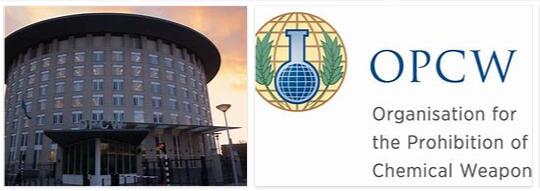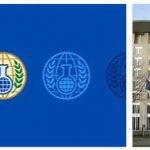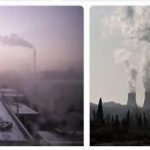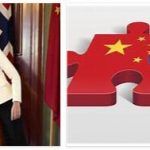6: Chemical weapons in international law and who is outside?
The use of chemicals has always aroused disgust and caused massive opposition to states or groups that have used them. There is a general opinion that the international agreements and conventions that deal with such weapons should be complied with and apply as international law . It is contrary to international law to use chemical weapons, whether in acts of war against another state or in national conflicts (civil war).
The Chemical Weapons Convention was signed by Syria on 14 September 2013, and 30 days later the country became member number 190 of the organization. Of the world’s 196 states, only six have not ratified the agreement: Israel, Myanmar, Angola, Egypt, South Sudan and North Korea . Israel and Myanmar have both signed the agreement, but have not ratified it by submitting the necessary documents. They are therefore not subject to international control through the OPCW. The other four countries are completely excluded.
7: Use of chemical weapons
Already over 1700 years ago, evidence of the use of chemicals was found in Syria. At that time, the Persians used it against the Romans during a siege in the year 256. The chemicals used were sulfur dioxide and oil vapor.
Modern use of chemical weapons began during the First World War. Germany began using various tear gases against British forces in France in 1914 and against Russian forces in Poland in 1915.
According to bestitude, the battles of Ypres in Belgium in the spring of 1915 were the beginning of the widespread use of chemical weapons. Then French, Canadian and Algerian forces were attacked with chlorine gas by the Germans. British troops struck back with the same weapon late that year. Ypres has been closely associated with chemical weapons; it was also in this area that German troops used mustard gas for the first time in the summer of 1917. Ypres has given its name to mustard gas and is called in many countries yperite .
From the interwar years, it is known that Italian troops used mustard gas during the invasion of Ethiopia in 1936. There is no evidence that chemical weapons were used in combat operations during World War II. But all parties had built up large stocks of mustard gas, and the nerve agents had made their entrance.
But also in World War II, chemical agents were used – when hydrogen cyanide (hydrocyanic acid) was used in the gas chambers created by the Nazis. There is also detailed written material that the Japanese conducted extensive experiments on people with chemical weapons in China.
In recent times, it is the conflict between Iran and Iraq in the 1980s that again focused on chemical weapons. Iraq had large stocks of mustard gas , which was used extensively. They were also the first to use proven antidepressants. Most famous is the attack with sarin on the village of Halabja in 1988. Rumor has it that Saddam Hussein punished the Kurds (in Iraq) for supporting Iranian troops in the conflict between the two countries.
In Syria in August 2013 came the most recent use of chemical weapons. The clues point to the fact that it was the government forces that were behind these attacks, but there is no unequivocal evidence for this. Inspectors from the UN and the OPCW found indisputable evidence that sarin was used, without being able to say who was to blame.
The threat from non-state actors should also not be underestimated. Most famous is the Japanese sect Aum Shinrikyo, who produced and used sarin on the Tokyo subway in 1995.
8: Also a desire to influence the course of the world
The Chemical Weapons Convention and the extensive work that the OPCW has carried out to remove the threat from chemical weapons have been little known to the general public. The knowledge has been limited to a relatively small circle that for many years has worked with issues such as protection and defense against the threat from such weapons. However, the OPCW is very active towards countries that are outside the convention and that want affiliation and to put in place the necessary legislation.
The Peace Prize will clearly help to support this work and have a positive effect in terms of involving the countries that are still outside. The Chemical Weapons Convention appears as a flagship in the disarmament work . With the attention that the Peace Prize now receives, it could have a negative effect on a country to stand outside.
The focus that the Nobel Peace Prize places on the OPCW’s work will be able to increase the level of knowledge about what chemical weapons are and ensure good ethical attitudes among the professional groups involved as well as reduce the chance of abuse. Chemicals that can be easily converted into chemical weapons will always be present, since most of the chemicals in question have an industrial application of a more socially beneficial nature.
The understanding of how easy it is to build new chemical weapons is limited among politicians. It can therefore be a challenge to gain an understanding that control of chemicals will continue to be a good insurance in the future. The OPCW ‘s effective regime should be continued as an assurance that the world community maintains a focus on the problem and is concerned that abuse should not occur. In other words, they will be concerned with checking for irregularities in more detail. The OPCW’s work should certainly have a function even after all chemical weapons have been destroyed.
Facts
For the first time in a civil war
News reports after the attack in Damascus on 21 August 2013 gave clear signals about the use of chemical weapons. Inspectors from the OPCW then faced new challenges. For the first time , they were to verify (confirm) alleged use of chemical weapons and operate in a country in civil war . The samples they brought to international laboratories provided unequivocal evidence that the neurotransmitter sarin had been used.
The four principles of the Chemical Weapons Convention:
- Destroy all existing chemical weapons under international control of the OPCW.
- Monitor the chemical industry to prevent the re-emergence of chemical weapons.
- Provide assistance and protection to member countries against chemical threats.
- Promote international cooperation to strengthen the realization of the Convention.









